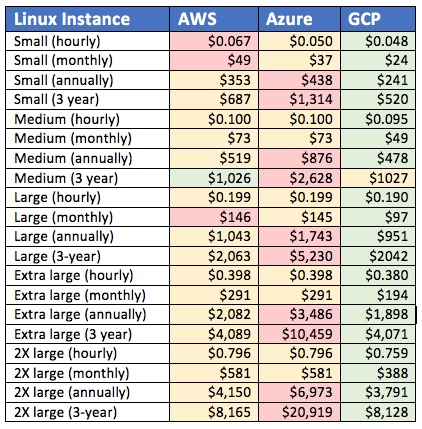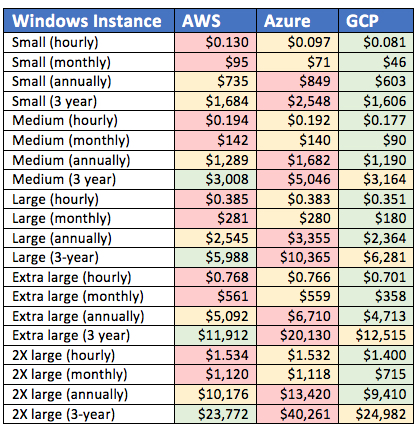
Companies love to say AI is the future, but some are spending more money on that future than others.
Amazon is going deep on AI within various aspects of their business. A recent Wired article highlights the projects Amazon is building automation and robotics strategies (managing internal process, mining customer data, and selling automated services in the cloud and via smart speakers). These practices are paying off as Amazon reported their largest profit ever.
Amazon isn’t alone, Foxconn is allocating $340M in automation R&D and IBM keeps advancing Watson’s medical abilities recently developing a method to diagnose certain types of mental illness.
Acquisitions
- LogMeIn is buying Jive Communications for up to $357M to step up in enterprise unified comms
Yet more consolidation in the enterprise collaboration software market. Today LogMeIn, the company that offers conferencing services like GoToMeeting and join.me as well as authentication and other online services to businesses and others, announced that it would acquire Jive Communications for $342 million in cash plus up to $15 million based on reaching specific milestones in the next two years.
Jive Communications is not to be confused with Jive Software, the Slack competitor in enterprise collaboration that itself was acquired last year for $462 million by Aurea. However, it is also in a bigger area of enterprise communications, and underscores how we are continuing to see a lot of M&A and general growth in that market. This is a strong exit for Jive Communications, a Utah-based startup that had raised only around $31 million since it was founded in 2006.
- Qualcomm rejects Broadcom’s $121 billion bid
Qualcomm’s board of directors issued a statement on Thursday saying that they are turning down Broadcom’s $121 billion bid to buy the competing chipmaker.
According to the release, Qualcomm “unanimously rejected” an “unsolicited proposal” to buy all of its shares at $82 each, of which $60 would be cash and $22 stock. Broadcom made the revised offer on Monday, up from the previously proposed deal price of $70 per share.
https://techcrunch.com/2018/02/08/qualcomm-rejects-broadcoms-121-billion-bid/?ncid=rss
Artificial Intelligence
- IBM’s New AI Can Predict Psychosis in Your Speech
The group built on the findings of a 2015 IBM study demonstrating the possibility of using AI to model the differences in speech patterns of high-risk patients who later developed psychosis and those who did not. Specifically, they quantified the concepts of “poverty of speech” and “flight of ideas” as syntactic complexity and semantic coherence, respectively, using an AI method called Natural Language Processing (NLP).
Their AI then evaluated the speech patterns of patients that researchers instructed to talk about themselves for an hour.
- Foxconn to plug at least $340M into AI R&D over five years
According to Nikkei, Foxconn intends to recruit up to 100 top AI experts globally. It also said it will recruit thousands of less experienced developers to work on building applications that use machine learning and deep learning technologies.
Embedding sensors into production line equipment to capture data to feed AI-fueled automation development is a key part of the AI R&D plan, with Foxconn saying earlier that it wants to offer advanced manufacturing experiences and services — eyeing competing with the likes of General Electric and Cisco.
The company has also been working with Andrew Ng’s new AI startup Landing.ai — which is itself focused on plugging AI into industries that haven’t yet tapping into the tech’s transformative benefits, with a first focus on manufacturing — since July.
https://techcrunch.com/2018/02/03/foxconn-to-plug-at-least-340m-into-ai-rd-over-five-years/?ncid=rss
Mentioned this last week, here are some more details. - Inside Amazon’s Artificial Intelligence Flywheel
Amazon loves to use the word flywheel to describe how various parts of its massive business work as a single perpetual motion machine. It now has a powerful AI flywheel, where machine-learning innovations in one part of the company fuel the efforts of other teams, who in turn can build products or offer services to affect other groups, or even the company at large. Offering its machine-learning platforms to outsiders as a paid service makes the effort itself profitable—and in certain cases scoops up yet more data to level up the technology even more.
It took a lot of six-pagers to transform Amazon from a deep-learning wannabe into a formidable power. The results of this transformation can be seen throughout the company—including in a recommendations system that now runs on a totally new machine-learning infrastructure. Amazon is smarter in suggesting what you should read next, what items you should add to your shopping list, and what movie you might want to watch tonight. And this year Thirumalai started a new job, heading Amazon search, where he intends to use deep learning in every aspect of the service.
“If you asked me seven or eight years ago how big a force Amazon was in AI, I would have said, ‘They aren’t,’” says Pedro Domingos, a top computer science professor at the University of Washington. “But they have really come on aggressively. Now they are becoming a force.”
https://www.wired.com/story/amazon-artificial-intelligence-flywheel/
- Is artificial intelligence killing Japan’s banks? (Thanks JD!)
Due to Japan’s zero interest rate policy, domestic banks can’t make money on loans, so they’ve become clearinghouses for other financial companies’ products, be it mutual funds or insurance policies. Banks are basically salesmen who collect handling fees for delivering products and services. Once that task is automated or otherwise rendered obsolete by new technology, what’s the point of a bank?
Cloud
- Is Google Losing to Amazon?
But profitability isn’t why investors favor the retailer over the search engine. Google’s $26.1 billion of operating income last year is about 40% more than Amazon has earned in its entire existence. Nor is it the propensity to make big gambles. The difference is that Amazon has figured out how to make more of its big gambles, such as Prime and its AWS cloud service, drive its accelerating growth. Since 2010, Amazon’s larger revenue base has averaged 28% growth annually while Alphabet’s has averaged 21%.
https://www.wsj.com/articles/is-google-losing-to-amazon-1517662800
- Amazon Reports Largest Profit Ever
Amazon’s sales rose 38 percent to $60.5 billion in the quarter, also beating estimates. Its North America revenue jumped 42 percent to $37 billion, while international sales grew 29 percent to $18 billion. Revenue from subscription fees grew 49 percent to $3.2 billion. Advertising and other revenue rose 62 percent to $1.74 billion.
Amazon Web Services (AWS) continued to be the fastest-growing and most profitable business of the company. The unit posted a 45 percent rise in sales, jumping to $5.1 billion, and saw its profit margin expand from the third quarter. AWS sales accounted for a whopping 64 percent share of Amazon’s total operating income.
http://chronicleofnews.com/amazon-reports-largest-profit-ever/
Security
- Crucial iPhone source code posted in unprecedented leak
Critical, top secret Apple code for the iPhone’s operating system was posted on Github, opening a new, dangerous avenue for hackers and jailbreakers to access the device, Motherboard reported. The code, known as “iBoot,” has since been pulled, but Apple may have confirmed it was the real deal when it issued a DMCA takedown to Github, as Twitter user @supersat noted.
iBoot is the iOS code that ensures a secure boot by loading and checking that kernel is properly signed by Apple before running the OS. The version that was posted to Github, supposedly by a Twitter user named @q3hardcore, was for iOS 9, but much of it likely still exists in the latest version, iOS 11.
https://www.engadget.com/2018/02/08/crucial-iphone-source-code-posted-in-unprecedented-leak/
Software/SaaS
- Oracle’s cloud bravado masks its database despair
No, we’re not going to see Oracle’s database revenue fall off a cliff. But that might not be because its customers remain committed to the database leader. Instead, they may simply continue to pay for stuff they don’t actually use. As a recent Rimini Street survey showed, as much as 74 percent of Oracle customers are running unsupported, with half of Oracle’s customers not sure what they’re paying for. These customers are likely paying full-fat maintenance fees for no-fat support (meaning they get no updates, fixes, or security alerts for that money).
- Where Barry Padgett Plans to Lead Ariba
The number one lesson by far is that you need to go in with the right drivers. The wrong driver is, “I have a bunch of data. How do I make money on the data?” There are a lot of examples where platforms have come out of the desire to monetize a resource or an asset that you already have, and that is a terrible model — number one, because you end up building the wrong set of services, and, number two, in general, you find over time that people aren’t really willing to pay for it. So you end up doing a bunch of pivots to figure out what your platform story really should be.
When you go into platform transformation, you really need to do it from the lens of the customer. You have to think about “How does the customer get value out what they’ve already bought from you?” rather than, “How do I charge the customer more, or how do I take what the customer’s generating and create more opportunity for myself financially?” When you really think about it from a customer value perspective, you build out the right set of services in the right way.
http://spendmatters.com/2018/02/07/creating-legacy-sap-beyond-barry-padgett-plans-lead-ariba/
- Microsoft is reportedly shifting its Windows strategy as it tries to outmaneuver Apple and Google
Thurott reports that Microsoft will no longer offer Windows 10 S as a standalone operating system. You could never buy it yourself, but computer manufacturers (OEMs, or “original equipment manufacturers” in industry parlance) could license it from Microsoft to pre-install on the computers they sold to customers.
Instead, Microsoft will push a so-called S Mode onto all versions of the Windows 10 operating system, reports Thurott. When enabled, S Mode will make any version of Windows 10 act like Windows 10 S, with all of the benefits and tradeoffs therein.
Microsoft had previously said that S Mode would be coming to Windows 10 for businesses in future updates; this would just bring it to all of the consumer versions, too.
http://www.businessinsider.com/microsoft-windows-10-s-dead-or-alive-2018-2
Datacenter
- Why Mainframes Aren’t Going Away Any Time Soon
The focus on Linux isn’t the only motivator behind the upsurge in mainframe use in data centers. Increasingly, enterprises with heavy IT needs are finding many advantages to incorporating modern mainframes into their plans. For example, mainframes can greatly reduce power, cooling, and floor space costs. In markets like New York City, where real estate is at a premium, electricity rates are high, and electricity use is highly taxed to reduce demand, these are significant advantages.
“There was one customer where we were able to do a consolidation of 25 x86 cores to one core on a mainframe,” Santalucia said. “They have several thousand machines that are ten and twenty cores each. So, as far as the eye could see in this data center, [x86 server workloads] could be picked up and moved onto this box that is about the size of a sub-zero refrigerator in your kitchen.”
http://www.datacenterknowledge.com/hardware/why-mainframes-arent-going-away-any-time-soon
Other
- Akamai has laid off 400 workers or 5 percent of global workforce
Akamai, the Cambridge Massachusetts content delivery network and network services provider, announced they had laid off 400 people in their earnings call with analysts yesterday.
On the call, Akamai CEO Tom Leighton indicated that the 400 people represented 5 percent of the company’s 8000 worldwide workforce. “As part of our effort to improve operational efficiency, we reduced headcounts in targeted areas of the business, most notably in areas tied to our Media business. Overall, we have removed about 400 positions or 5% of our global workforce,” Leighton told analysts.
He went onto to say that the layoffs actually began at the end of last year and have spilled over into this week. The company sees this as part of an effort to get leaner and cut costs, an effort that predates Elliott Management buying a 6.5 percent stake in the company in December.
- Best Buy will stop selling CDs as digital music revenue continues to grow
Despite no longer selling CDs, Best Buy will still sell vinyl for the next two years, which Billboard says is part of a commitment it made to vendors. Sources suggested that Best Buy’s music CD arm was only generating $40 million annually.
As we’ve previously reported, during the first half of 2017, streaming services accounted for 62 percent of revenue from the US music market. The decline of CD sales has also sparked Warner Music Group to offer voluntary buyouts to its 130 staff working in physical product, according to Billboard.
It’s not surprising that we’re no longer buying CDs — at least not for new music. The best-selling CD in 2016 was a Mozart boxset, which contained 200 CDs that were individually counted as a separate sale. Users who don’t buy music prefer to stream it via services like Spotify and Apple Music, and gadget makers aren’t really making CD players anymore.
https://www.theverge.com/2018/2/6/16973538/bestbuy-target-cd-sales-vinyl-cassette

Photo: Adam Fossier

















